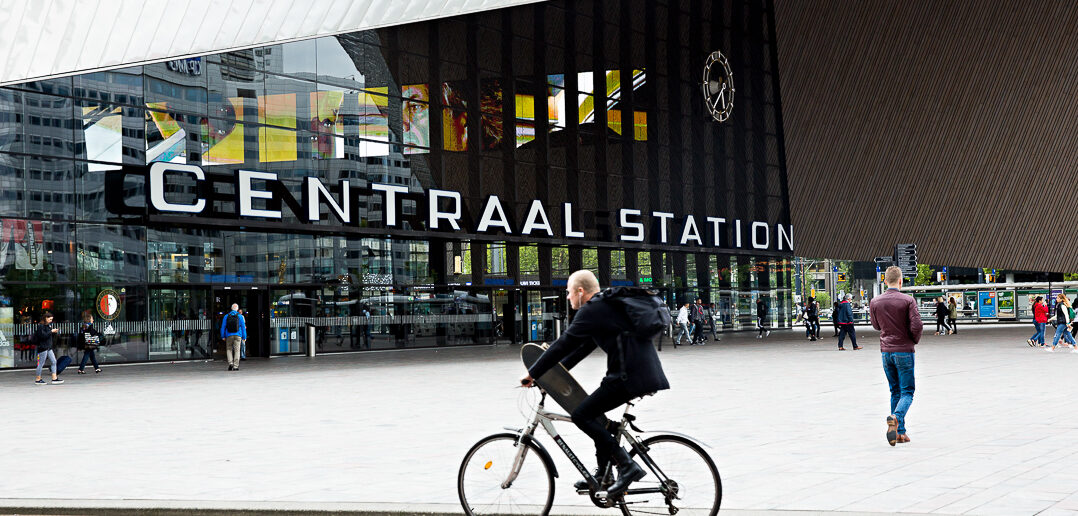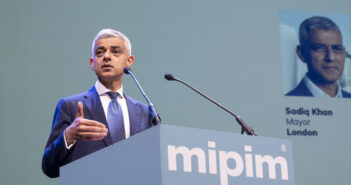Huge shifts are taking place in real estate as new technologies and changing user behaviour lead to a more service-oriented approach. One such shift is in the concept of urban mobility, which in turn is helping bring cleaner air to our cities.
“In the future, real estate will not just be about how to make the most money out of a deal,” said Barbara Knoflach, Global Head of BNP Paribas Real Estate Investment Management, at MIPIM 2019. “Real estate will also be about how we can make the places where we live, work and play happier, safer and healthier.”
World Environment Day 2019 – air pollution
With 91% of the world’s population living in areas breaking the air quality guidelines set by the World Health Organisation, it is only fitting that air pollution is the focus of World Environment Day 2019 on 5 June.
Outdoor air pollution resulted in around 660,000 premature deaths in the 28 countries of the European Union alone in 2015, and 8.8 million worldwide, making it a bigger killer than tobacco smoking, according to a study published in the European Heart Journal.
Transport – in particular petrol/diesel-fuelled vehicles – is the main cause of air pollution in cities. In the developing world, air pollution is also the result of burning the likes of cheap coal, plastic and cow dung, as journalist Beth Gardiner describes in her book Choked.
Air pollution – the effect on property valuation
Air pollution is not only affecting the quality of life of the end user of real estate – the occupier, the resident and the city visitor – but it is also shaping government policy: the UK Government, for example, launched its Clean Air Strategy 2019 earlier this year as a “world-leading” plan to tackle air pollution.
And air pollution is starting to affect the way property assets are valued.
Ben Elder, RICS International Director for Valuation, said: “It is clear that in many markets, environmental matters, such as air pollution, are increasingly becoming more important to the buyers and sellers of real estate.
“Factors such as air pollution are growing in importance in terms of market perception and influence and it is therefore essential that valuers have proper regard to their relevance and significance” – Ben Elder, RICS
“The role of a valuer is to reflect in their valuation all the key decision points market participants make when agreeing a transaction. The RICS Red Book ensures that qualified professionals ensure matters that fall within sustainability and the environment are reflected in any valuation.
“Factors such as air pollution are growing in importance in terms of market perception and influence and it is therefore essential that valuers have proper regard to their relevance and significance in relation to individual valuation assignments; a trend which we expect to continue.”
Mobility in the City at MIPIM 2019
At a city level, authorities are looking at alternative urban mobility systems – to move away from the dominance of the private car, and as a way of creating cleaner air and making cities more efficient and accessible.
As panel members discussed at the MIPIM 2019 conference session Mobility in the City, the system of the future is one of a network of transit hubs with public transport working together, especially for the ‘last mile’, with shared and on-demand transport, whether cars, bicycles or scooters.
As part of Mobility as a Service (MaaS), city residents and visitors will then access a single, on-demand digital platform on their phones, which integrates all the transport modes and offers a standardised payment and ticketing system.
Other discussion points that came up at the MIPIM session on Mobility in the City included:
- “Changes in the way we use vehicles, and the nature of vehicles, are shaping the places around us,” said Dr Louise Brooke-Smith, Partner – Head of Development & Strategic Planning, Arcadis, the global design & consultancy firm.
- Transit hubs act as poles for economic development, said Martin Guit, Strategic Advisor Mobility for the Municipality of Rotterdam, who gave the example of Rotterdam Centraal Station (top photo) which, after remodelling (including parking for 5,200 bicycles), has become like a “red carpet into the city” and a focal point for new office developments.
- As cities densify, the level of car use falls and the need for bicycle and pedestrian infrastructure increases, said Guit, referring to studies in The Netherlands. “The city is no longer a parking space for cars,” he said.
- Connected & autonomous vehicles (CAVs) are no longer science fiction. “The CAV approach is one area that people are embracing with an awful lot of energy,” said Brooke-Smith. “It will require a massive installation of electric service points, and fewer roads and parking spaces.” (For more on how CAVs will radically transform urban mobility, see the Arcadis report: Citizens in Motion: Who’s Driving Your Future?)
Changing mindsets about transport on demand
The Mobility in the City MIPIM session recognised the challenge of changing the mindset away from the private car.
“People attract people. You have to invest. You have to tell the stories” – Martin Guit, City of Rotterdam.
“Transport needs to be safe, fast and in good condition,” said Véronique Doucet, Director of the Service of Economic Development for the City of Montreal. And very often cultural factors need to be considered as well as economic ones.
Guit talked about the benefits of experiments as a way to test the waters. He gave the example of the introduction of ‘parking days’ in The Netherlands, when for one day a car-park becomes a place for people to meet and sit. “People attract people. You have to invest. You have to tell the stories,” he told the audience.
As Gardiner writes in Choked: “[The challenge of air pollution] is not an insoluble puzzle, a problem to which we must resign ourselves. We know how to fix it. If we do, we’ll reap the rewards, in lives saved and health improved.”
One country already ‘fixing’ it is Norway – they became the first country in the world last year to sell more electric than petrol/diesel cars. It seems just a matter of time before other countries, and cities, follow suit.
TOP PHOTO: Iris van den Broek



